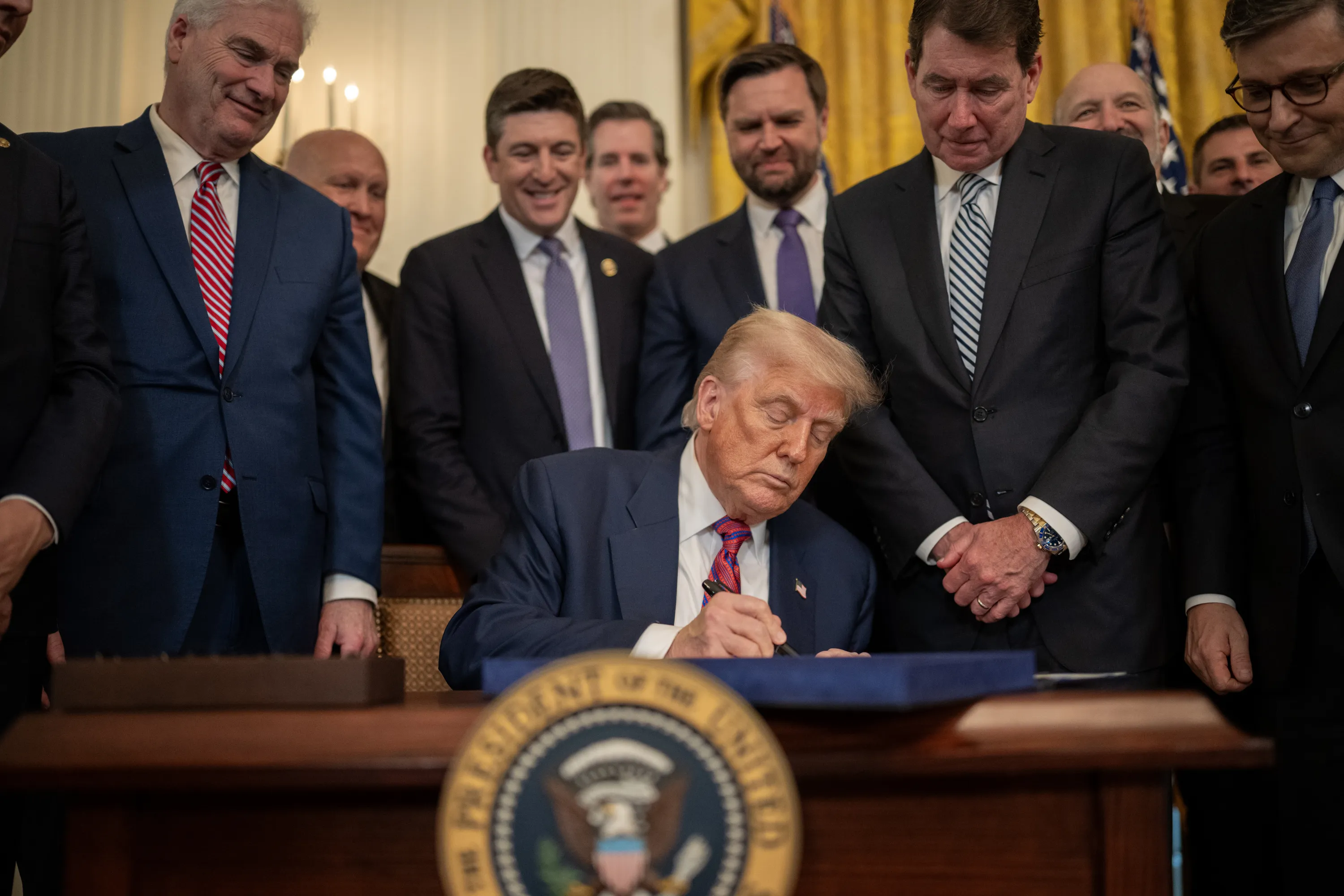Why Ukraine needs debt relief

Erik Berglof
Director, Institute of Global Affairs, School of Public Policy, London School of Economics & Political SciencesStay up to date:
Financial and Monetary Systems
In addition to its many other troubles, Ukraine now finds itself in a showdown with its creditors. Investors holding high-yielding bonds – many of them bought at heavy discounts after Russia’s annexation of Crimea last year – are demanding to be paid in full. Ukraine’s government, for its part, argues that the country’s financial difficulties – in particular the economic effects of the conflict and the plunge in the value of the hryvnia – have made its debt burden unsustainable.
The outcome of this standoff could determine Ukraine’s future, as much as the military confrontation with Russia. Recent developments have put the country on a path that would have been unimaginable until very recently. For the first time in Ukraine’s post-Soviet history, it has a government that is willing and able to carry out real reform. Ukraine’s progress, however, could not be more fragile. Without some form of debt relief, it could easily be lost.
A little over a year ago, Ukraine did not have an elected president or a representative and functioning parliament. The political landscape was deeply fragmented. Civil society had been energized by the Maidan revolution that ousted former President Viktor Yanukovych, but it was in turmoil. Debate over the association agreement with the European Union, along with the Russian-backed rebellion in the east, had stoked tensions over distinctions that previously played little or no role in people’s lives.
But since parliamentary elections in October, Ukraine has begun to pull itself together. Russia’s intervention has to some extent backfired, strengthening support for a European orientation. Eastern Ukraine may have voted differently from the rest of the country, but the overwhelming majority of voters came out in favor of Europe. The electorate also said no to the more virulent forms of nationalism, leaving the right-wing extremist parties marginalized.
The result of the elections was the formation of a five-party governing coalition. Though seemingly fragile, it has held up remarkably well. Some of its members have displayed worrying populist tendencies, but an analysis of parliamentary voting patterns indicates that so far the coalition has been able to find agreement, even on very difficult issues. The government has, among other things, raised gas tariffs by 450% (from absurdly low levels). Dissension has been relatively moderate.
As a result, Ukraine’s core institutions are undergoing fundamental change. The central bank – once in the pocket of the country’s oligarchs, supplying inside information on exchange rates and liquidity in exchange for bribes – has been put under the command of a governor committed to reform, surrounded by an increasingly professional team. The energy monopoly Naftogaz, previously a cesspool of illicit transactions, has in a year managed the seemingly impossible: making Ukraine virtually independent from direct gas delivery from Russia for at least a year.
Perhaps Ukraine’s single most important achievement is the establishment of the National Reform Council. Originally set up to coordinate reforms across ministries and monitor their implementation, it has come to serve as an important tool to discuss and ensure coherence among the different branches of government. This latter role is particularly important, given the constitutional ambiguity created by the reversion back to a parliamentary system and the uneasy co-habitation of President Petro Poroshenko and Prime Minister Arseniy Yatsenyuk in government. Meetings are held every three weeks and are attended by the president, the prime minister, and his entire cabinet, providing a forum in which tensions can be discussed and eased.
In between meetings, the council’s special project-management office assists in the preparation and implementation of key reforms by ministries. With support from the European Bank for Reconstruction and Development, the George Soros-funded International Renaissance Foundation, and bilateral assistance from, among others, the Swedish government, the office has been able to hire staff at market rates, raising the quality of the government administration.
Ukraine’s government has also benefited from the expertise of private-sector leaders. Deputy Head of the Presidential Administration Dmytro Shymkiv, who drove the National Reform Council, was CEO of Microsoft Ukraine. Finance Minister Natalie Jaresko and Economic Development and Trade Minister Aivaras Abromavicius were both investment bankers (neither was a Ukrainian citizen when they joined the government). Infrastructure Minister Andriy Pivovarsky, also a former investment banker, was most recently CEO of Continium, one of the country’s largest holding companies. Each has played a key role in pushing the reform agenda forward, working for salaries that are orders of magnitude smaller than what they earned before. Some have even employed staff using their own money.
Meanwhile, the ambitious agendas of the government ministers and the presidential administration are closely monitored by an energized civil society. As Soros has noted, Ukraine probably has the most active civil society in Europe. One of the country’s most interesting new ventures is VoxUkraine, a blogging platform set up by two Ukrainian economics professors based in the United States, Yuriy Gorodnichenko and Timofiy Mylovanov. They have championed modern evidence-based decision-making and constantly come up with new, constructive ways of challenging the government and its assumptions.
Despite all this progress, however, the odds remain stacked against the country. The government is fighting at least two wars simultaneously – taking on a deeply entrenched oligarchy, while trying to fend off its hostile eastern neighbor. Further trouble – in the form a steeply declining economy – is something it cannot afford.
The stakes could not be higher. For the first time since the country gained its independence in 1992, Ukraine has a clear sense of direction and a government capable of supporting reform. There are signs that the oligarchs’ grip is beginning to loosen, owing partly to internal conflicts among them. The EU and the US are working to help resolve its conflict with Russia. Ukraine’s private creditors must now do their part, recognize the country’s economic and political situation, and accept a haircut on their bonds. Neither the Ukrainian economy – nor its political system – can afford that they do otherwise.
This article is published in collaboration with Project Syndicate. Publication does not imply endorsement of views by the World Economic Forum.
To keep up with the Agenda subscribe to our weekly newsletter.
Author: Erik Berglöf, Professor and Director of the Institute of Global Affairs at the London School of Economics, is a former chief economist of the EBRD.
Image: A man removes snow on a street in Kiev. REUTERS/Sergii Polezhaka.
Don't miss any update on this topic
Create a free account and access your personalized content collection with our latest publications and analyses.
License and Republishing
World Economic Forum articles may be republished in accordance with the Creative Commons Attribution-NonCommercial-NoDerivatives 4.0 International Public License, and in accordance with our Terms of Use.
The views expressed in this article are those of the author alone and not the World Economic Forum.
Related topics:
Forum Stories newsletter
Bringing you weekly curated insights and analysis on the global issues that matter.
More on Financial and Monetary SystemsSee all
Wolfgang Fengler and Marta Cyhan Bowles
September 22, 2025
Agshin Amirov and Azar Hazizade
September 19, 2025
Naoko Tochibayashi
September 17, 2025
Dante Disparte
September 17, 2025
Kahlil (KB) Byrd and Alexis Crow
September 16, 2025
Mark Gough and Naoko Ishii
September 15, 2025





